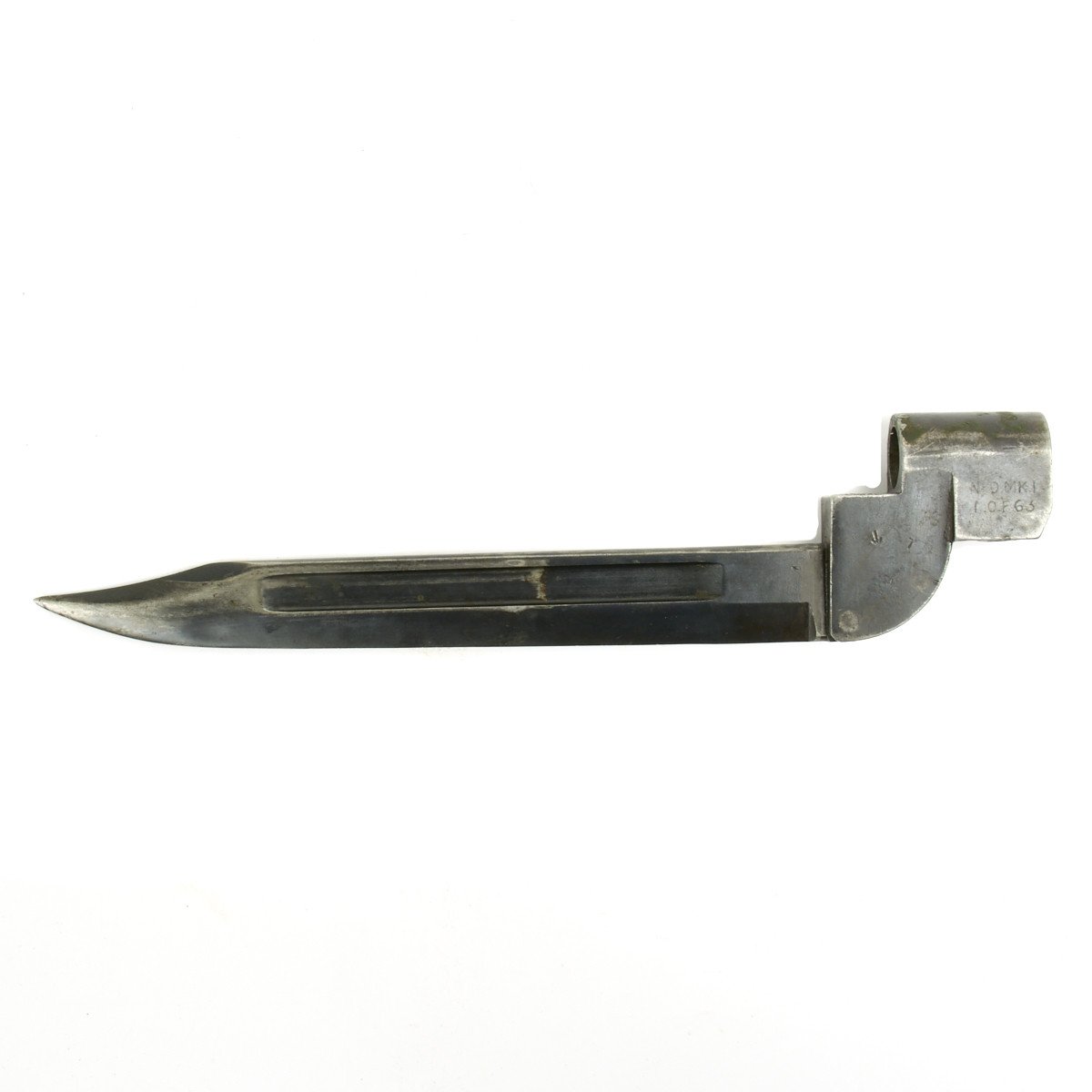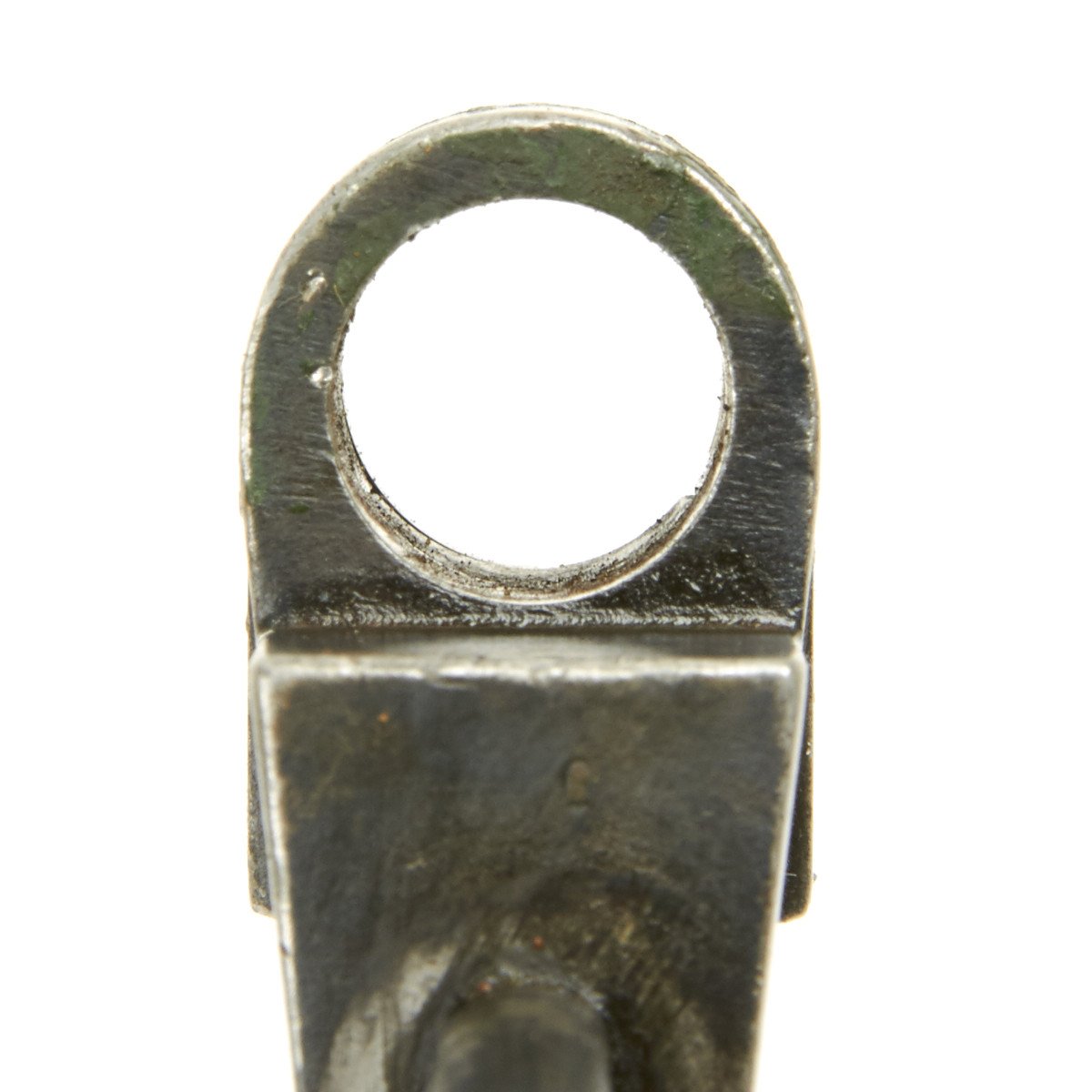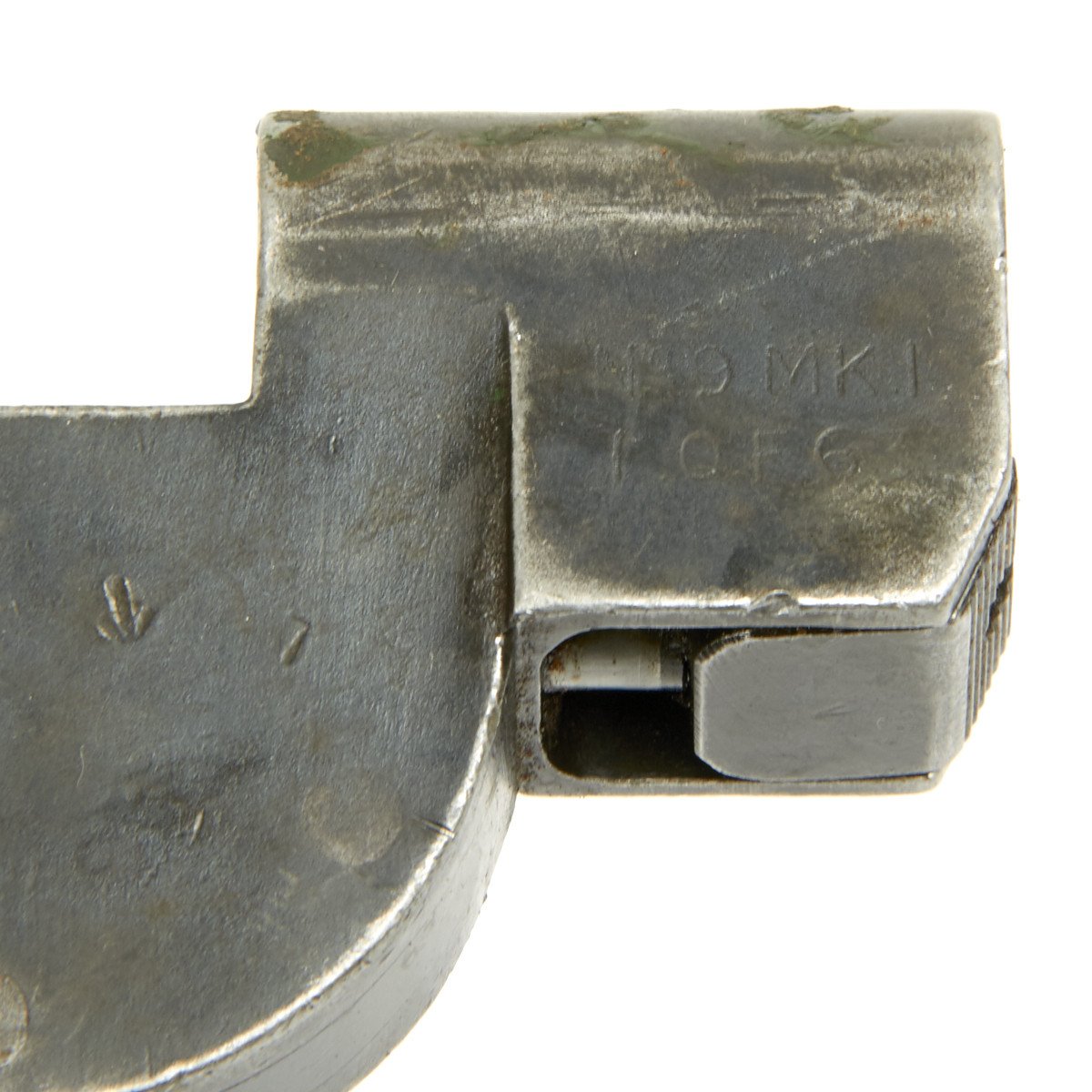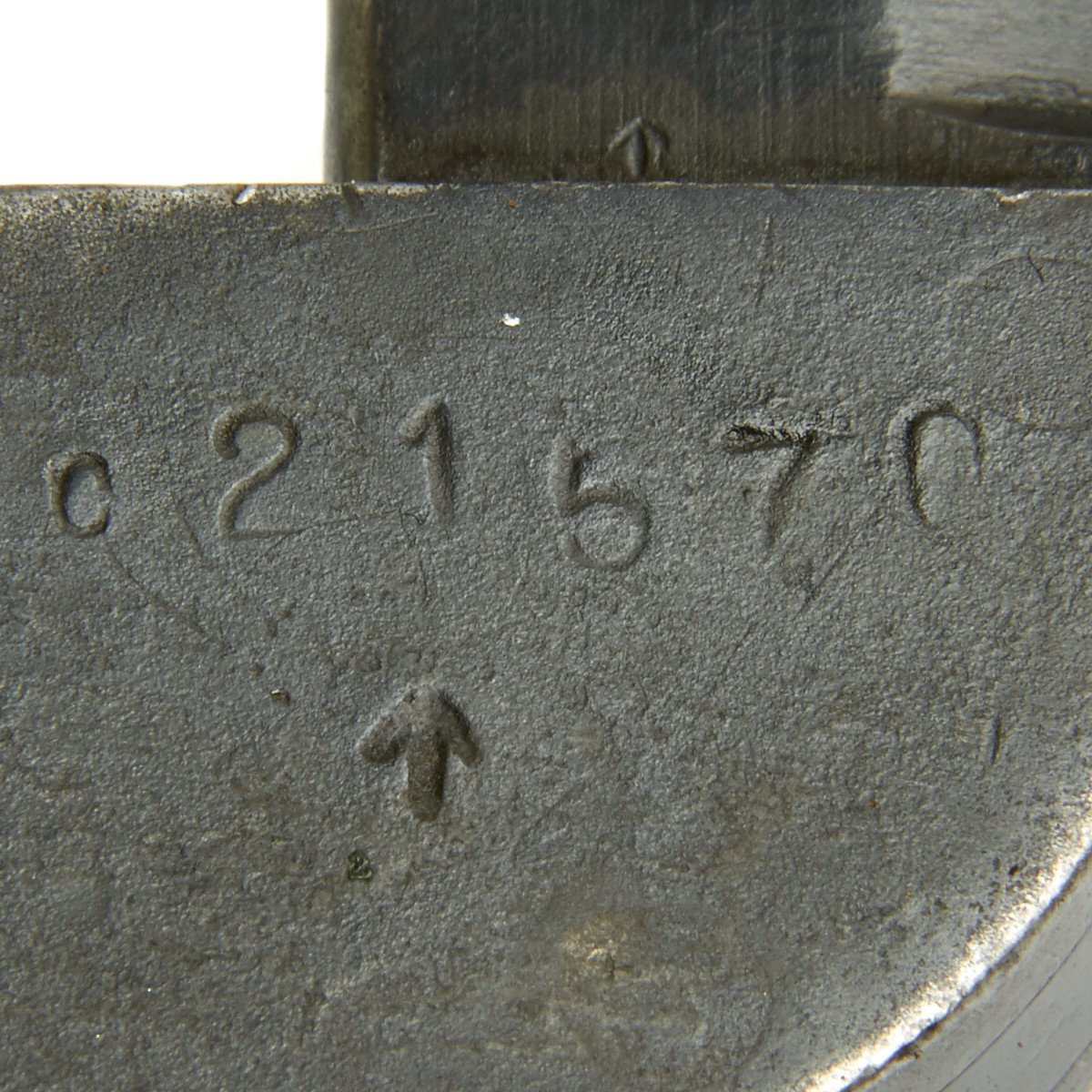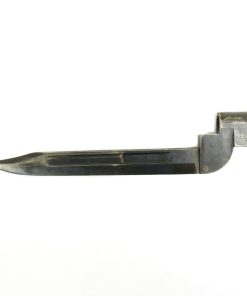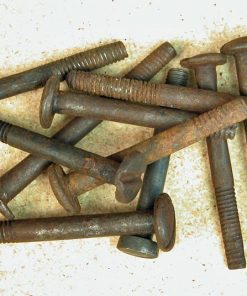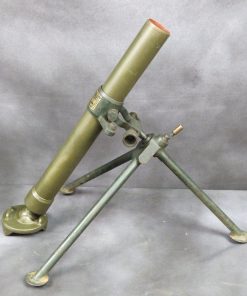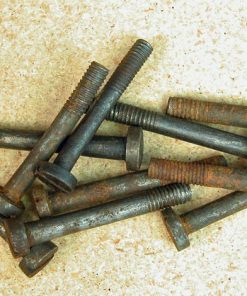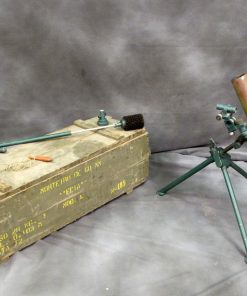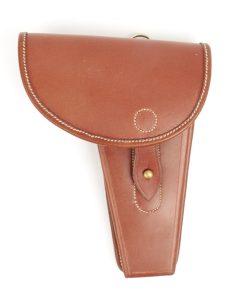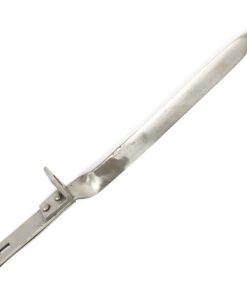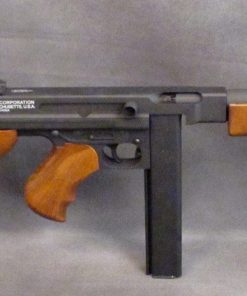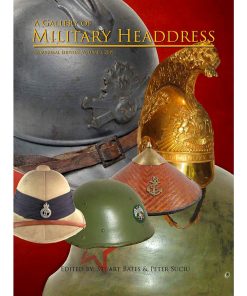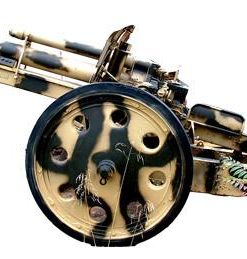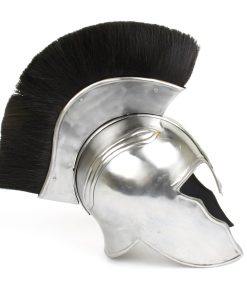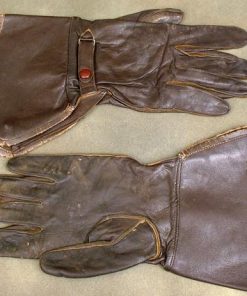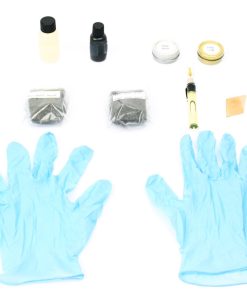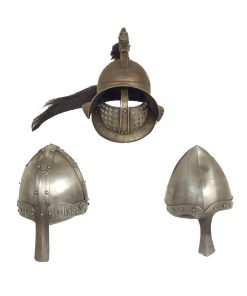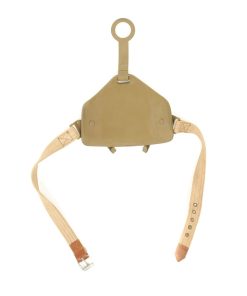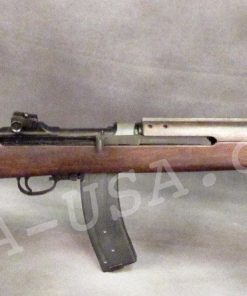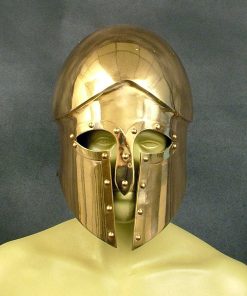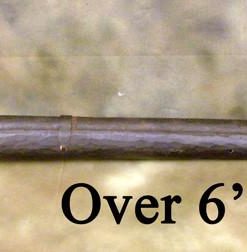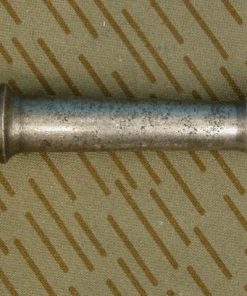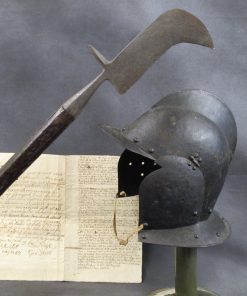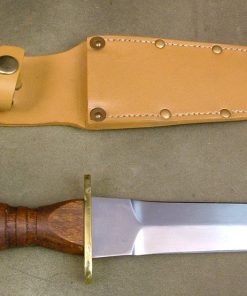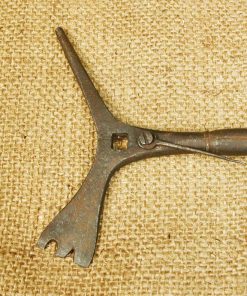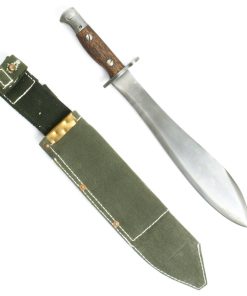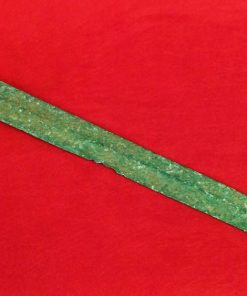British Enfield Bayonet No. 9 for Lee-Enfield Rifle No. 4 Mk I Original Items
$ 29,95 $ 17,97
Original Item: Bayonet designed for the Lee-Enfield Rifle No. 4 Mk I. These are original British made #9 Bowie bladed bayonets. Scabbard available separately.
Some background history:
The Lee-Enfield bolt-action, magazine-fed, repeating rifle was the main firearm used by the military forces of the British Empire and Commonwealth during the first half of the 20th century. It was the British Army’s standard rifle from its official adoption in 1895 until 1957.
A redesign of the Lee-Metford which had been adopted by the British Army in 1888, the Lee-Enfield superseded the earlier Martini-Henry, Martini-Enfield, and Lee-Metford rifles. It featured a ten-round box magazine which was loaded with the .303 British cartridge manually from the top, either one round at a time or by means of five-round chargers. The Lee-Enfield was the standard issue weapon to rifle companies of the British Army and other Commonwealth nations in both the First and Second World Wars (these Commonwealth nations included Canada, Australia, and South Africa, among others).[5] Although officially replaced in the UK with the L1A1 SLR in 1957, it remained in widespread British service until the early 1960s and the 7.62 mm L42 sniper variant remained in service until the 1990s. As a standard-issue infantry rifle, it is still found in service in the armed forces of some Commonwealth nations, notably with the Indian Police, which makes it the longest-serving military bolt-action rifle still in official service. Total production of all Lee-Enfields is estimated at over 17 million rifles.
The Lee-Enfield takes its name from the designer of the rifle’s bolt systemJames Paris Lee, and the factory in which it was designedthe Royal Small Arms Factory in Enfield. In Australia, New Zealand, Southern Africa and Canada the rifle became known simply as the “303”. So closely was the weapon associated with the British Empire that in the film Breaker Morant, a group of prisoners is said to have been shot “under rule three-oh-three”.
| Hand Select | No, Yes |
|---|
Prompt Shipping and Professional Packaging
We provide a variety of shipping options due to our long-running partnerships with UPS, FedEx and DHL. Our warehouse personnel are well trained and will pack the goods according to our exact and precise specifications. Before shipping your items will be thoroughly inspected and secured. Every day, we deliver to thousands of customers in different countries. This is a sign of our determination to become the largest online retailer worldwide. Both Europe as well as the USA have warehouses and distribution centers.
Note that orders containing more than one item will be subject to a processing period that is based to the particular item.
Prior to shipping the items, our staff will carry out an exhaustive inspection of the products you ordered. Today, most orders will be delivered within 48 hours. The estimated delivery time is between 3-7 days.
Returns
The stock is constantly changing. It's not entirely managed by us since we are involved with multiple entities, including the factory and our storage. Therefore, the actual inventory could alter at any time. It is possible that you will not receive your order after the order has been made.
The period of time is 30 days. Unfortunately, if 30 days have passed since you purchased your product, we are unable to provide a refund or exchange.
The item must not be in use and must be in the original packaging. The item must be in the original packaging.
Related products
Uncategorized
Uncategorized
Uncategorized
Uncategorized
Uncategorized
Uncategorized
Uncategorized
Band of Brothers ORIGINAL GERMAN WWII Le. F.H. 18 10.5cm ARTILLERY PIECE Original Items
Uncategorized
Uncategorized
Uncategorized
Australian WWII Owen MK1 Machine Carbine SMG Custom Fabricated Replica with Sling Original Items
Uncategorized
Uncategorized
Angolan Rebel 1970s era 60mm Inert Display Mortar from Angolan Civil War Original Items
Uncategorized
Uncategorized
Armored Burgonet Helmet & Polearm from Scottish Castle Leith Hall Circa 1700 Original Items
Uncategorized
Uncategorized
